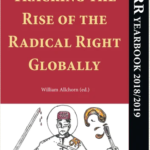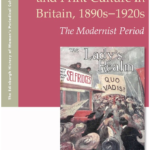Liisi Keedus has published an article on Karl Barth in The European Legacy. The full publication in Open Access is here. Here is the abstract:
It is only recently that a few histories of interwar European political thought have come to acknowledge that its discursive framing of ethical and social crises was closely interwoven with upheavals in the ways Europeans rethought and debated God. The first aim of the present article is to restore to Karl Barth (1886–1968) a central place in promulgating a thoroughly interdisciplinary approach to twentieth-century European ethical and political thought. Secondly, it seeks to correct the commonplace association of Barth’s theological revolution with radical and authoritarian political ideologies by exploring his early political thought and activities, whilst focusing on several of his most politically and intellectually influential ideas. The article concludes with a discussion of the wider implications of rethinking Barth’s role in intellectual history.





